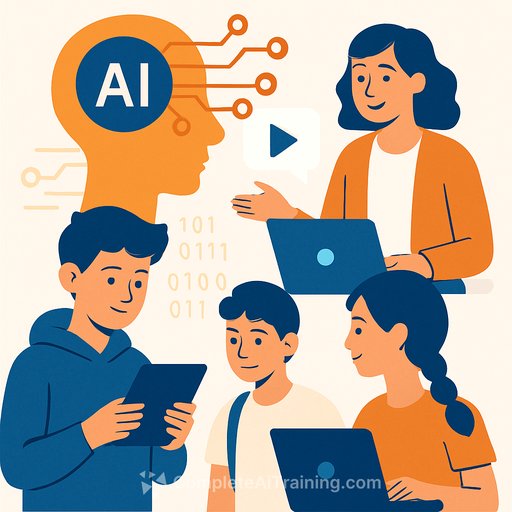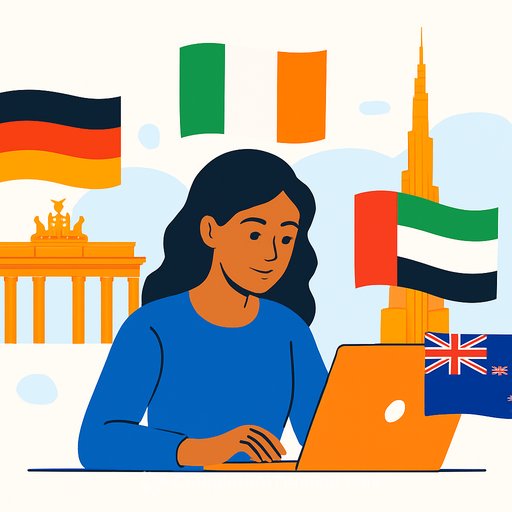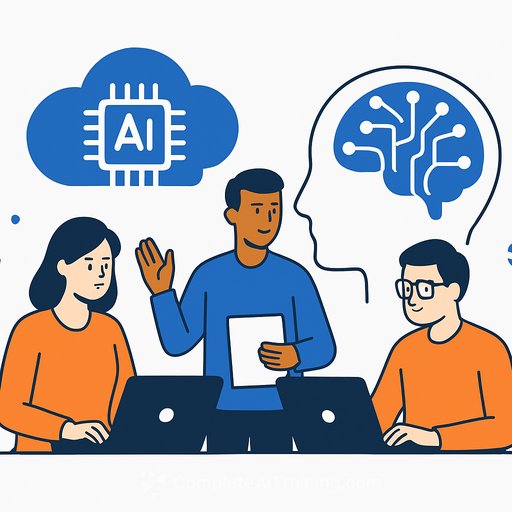Growing Up With A.I.: A Multimedia Challenge for Teenagers and Educators
Artificial intelligence is changing how we think, create, teach, and learn. For the generation currently in high school, the rise of A.I. presents new opportunities and challenges. This fall, students and educators are invited to share their experiences and perspectives on how A.I. is influencing their lives through words, images, audio, or video.
Since the release of ChatGPT in late 2022, generative A.I. has become a significant part of classroom and everyday life. Rather than explaining these changes, this challenge focuses on hearing directly from middle and secondary students and educators. What surprises, excites, concerns, or confuses you about growing up alongside A.I.? What do you want others to understand? Your unique viewpoint can add valuable nuance to the ongoing conversation.
The Challenge
Participants are asked to respond to one or both of these questions:
- What’s it like to think, create, teach, and learn while artificial intelligence transforms the world?
- What does A.I.’s rise mean for today’s high school generation?
You have freedom in how you respond. Your submission can be personal or broad, positive or critical. It can focus on school life or experiences outside of school. Work alone or collaborate with others. Choose any medium that expresses your ideas best: essays, poems, comics, songs, videos, podcasts, infographics, or more.
Using A.I. tools in your creation is allowed but must follow specific guidelines outlined below. To support your process, resources such as writing prompts, a contest rubric, and a collection of over 100 free articles about A.I. are available. A step-by-step guide will also be published soon.
What to Submit
You can share almost any digital creation relating to your experience with A.I., as long as it fits the rules. Alongside your work, you must submit an artist’s statement explaining your choices, creation process, and how your piece connects to the theme of artificial intelligence.
Previous contests have included a variety of formats:
- Essays, journal entries, or lists
- Photographs or screenshots
- Poems and song lyrics or recordings
- Reported articles, interviews, or short fiction
- Letters, emails, or text message exchanges
- Illustrations, comics, or political cartoons
- Videos (hosted on YouTube) and podcasts (hosted on SoundCloud)
- Data visualizations such as graphs or maps
- Sculptures or dioramas (digitally documented)
The goal is to present diverse perspectives that together tell a broader story about growing up with A.I.
General Rules and Guidelines
- Your submission must address one or both focus questions.
- Include an artist’s statement detailing when, where, how, and why you created your piece, and its connection to artificial intelligence.
- If you use A.I. in your creation, the artist’s statement must clearly explain how and why, including the prompts used. A.I. cannot be used to write this statement.
- Participants must be students aged 13-19 in middle or secondary school, or educators working with that age group. Collaborations are allowed within these groups.
- Each participant’s name can appear on only one submission.
- Written work must not exceed 450 words (excluding the artist’s statement).
- Videos and audio recordings can be up to two minutes long and must be hosted publicly on YouTube or SoundCloud with a shareable link.
- Entries must be original and unpublished elsewhere, except for personal social media posts.
- Submissions must respect copyright laws; use only your own original work or content with proper permissions.
- Obtain permission for any identifiable individuals featured and respect privacy.
- Deadline for submissions: 11:59 p.m. Pacific Time on October 22, 2025.
Rules for the Use of A.I.
Participants may experiment with generative A.I., but transparency is essential. The use of A.I. should serve to clarify and enrich your message, not replace your original work. The judging panel will consider how well your submission helps readers understand the impact of A.I. on teenagers and educators.
Your artist’s statement must include exact details of your A.I. use, including prompts, and reflect your human oversight in reviewing and editing the generated content. The final pieces will undergo editorial review before publication.
Resources for Teachers and Students
- Writing prompts and a discussion forum to explore ideas.
- A contest rubric applicable to all mediums.
- Upcoming step-by-step participation guide.
- A curated collection of over 100 free articles, podcasts, and videos on A.I.
- Recent editions of “Ask A Reporter” focused on generative A.I.
- A showcase of winning submissions from previous years’ “Coming of Age” contests.
Frequently Asked Questions
Questions for Educators
Why invite teachers this year?
Educators across all roles are experiencing the effects of A.I. in teaching and learning. This challenge offers a platform to share those experiences.
Can non-teaching staff participate?
Yes. Librarians, coaches, principals, custodians, and other school personnel working with teens are encouraged to join.
Should I participate alone or with students/colleagues?
Both options are welcome. This project can serve as a collaborative inquiry to build community and discussion.
General Submission Questions
Can submissions focus on A.I. outside of school?
Yes, your experience can be in or outside of school.
Is it better to use A.I. in my submission?
No preference. Authenticity and genuine engagement matter most.
What if I have little experience with A.I.?
Your perspective is valuable, whether you embrace, avoid, or are undecided about A.I.
Why are artist’s statements important?
They help judges understand your creative process and connection to the theme.
Rules and Judging
Who is eligible?
Students worldwide aged 13-19 in middle or high school, including home-schooled students.
How will entries be judged?
A panel of journalists, educators, and Learning Network staff will evaluate submissions.
What are the prizes?
Selected works will be published on nytimes.com and possibly in print. Participants keep full copyright and can reuse their work freely.
When will winners be announced?
Approximately two to three months after the contest closes.
For those interested in developing skills related to artificial intelligence and its applications, consider exploring specialized courses available at Complete AI Training.
Your membership also unlocks:




